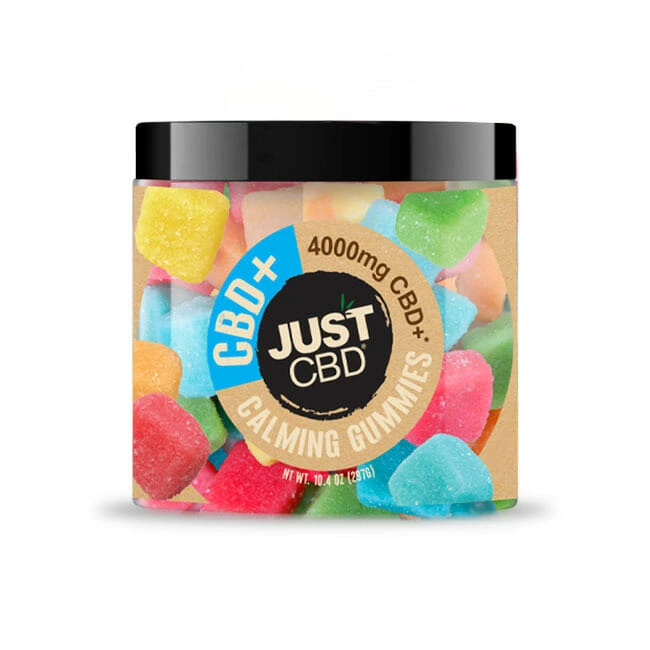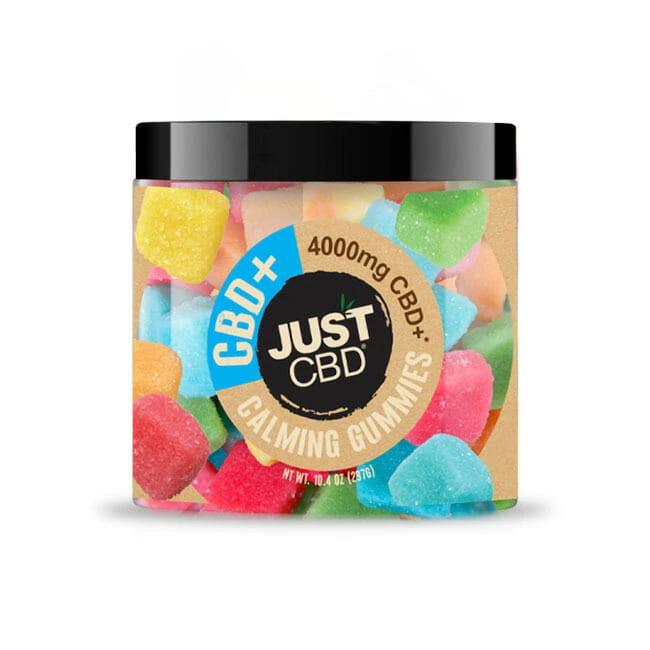Why CBD Gummies Are Popular For Reducing Chronic Pain
- by itzadmin
- Posted on June 4, 2025
Mechanism of Action
Understanding how a treatment works is crucial to grasping its potential benefits. This concept, known as the mechanism of action, delves into the specific ways a substance interacts with the body’s systems to produce its effects. When it comes to CBD gummies and their popularity in managing chronic pain, exploring their mechanism of action provides valuable insights into how they may provide relief.
Endocannabinoid System
The endocannabinoid system (ECS) plays a crucial role in regulating various bodily functions, including pain perception. This complex system consists of receptors (CB1 and CB2), enzymes responsible for producing and breaking down endocannabinoids (natural cannabinoids produced by the body), and endocannabinoids themselves.
CBD, a non-psychoactive compound found in cannabis, interacts with the ECS indirectly. It primarily achieves this by affecting the activity of the enzymes responsible for metabolizing endocannabinoids.
- Increasing Endocannabinoid Availability: CBD inhibits the enzyme FAAH (fatty acid amide hydrolase), which breaks down anandamide, a key endocannabinoid involved in pain modulation. By blocking FAAH, CBD allows anandamide to remain active for longer, potentially enhancing its pain-relieving effects.
- Modulating Receptor Activity: While CBD has low affinity for CB1 and CB2 receptors, it can indirectly influence their activity. This modulation may contribute to the analgesic effects of CBD by altering the communication between neurons involved in pain transmission.

The combined effects of these mechanisms are thought to contribute to the pain-reducing properties of CBD gummies.
CBD’s Role in Pain Modulation
While CBD does not directly bind to CB1 and CB2 receptors like THC, it influences the endocannabinoid system in ways that contribute to pain relief.
One key mechanism is by inhibiting the enzyme FAAH. This enzyme breaks down anandamide, a naturally occurring endocannabinoid with pain-relieving properties. By blocking FAAH, CBD increases the levels of anandamide available in the body, potentially amplifying its analgesic effects.
Furthermore, CBD can indirectly modulate the activity of CB1 and CB2 receptors. While it doesn’t bind to these receptors with high affinity, it can influence their responsiveness to endocannabinoids. This modulation of receptor activity may alter the communication between neurons involved in pain transmission, leading to a reduction in pain perception.
Benefits for Chronic Pain Conditions

Chronic pain significantly impacts individuals’ quality of life, and finding effective treatments is paramount. CBD gummies have gained popularity as a potential solution for managing chronic pain, but understanding their benefits requires exploring the mechanisms behind their action.
Arthritis
CBD gummies have emerged as a popular option for chronic pain management, particularly for those with conditions like arthritis. These gummies deliver cannabidiol (CBD), a compound derived from hemp or cannabis plants, which interacts with the body’s endocannabinoid system (ECS).
The ECS plays a crucial role in regulating various physiological processes, including pain perception. CBD indirectly influences the ECS by affecting the enzymes responsible for producing and breaking down endocannabinoids, the body’s natural pain relievers.
One way CBD exerts its analgesic effects is by inhibiting an enzyme called FAAH (fatty acid amide hydrolase). FAAH breaks down anandamide, a key endocannabinoid involved in pain modulation. By blocking FAAH, CBD increases the levels of anandamide in the body, potentially enhancing its pain-relieving properties.
Additionally, CBD can indirectly modulate the activity of CB1 and CB2 receptors, which are part of the ECS and play a role in pain signaling. While CBD does not bind directly to these receptors with high affinity, it can influence their responsiveness to endocannabinoids, potentially altering pain transmission in the nervous system.
Back Pain

Chronic pain is a debilitating condition that affects millions worldwide. Back pain, a common type of chronic pain, can severely limit mobility and quality of life. CBD gummies have emerged as a popular option for managing chronic pain conditions like back pain due to their potential therapeutic benefits.
The popularity of CBD gummies stems from their purported ability to reduce pain and inflammation. They contain cannabidiol (CBD), a non-psychoactive compound found in cannabis plants, which interacts with the body’s endocannabinoid system (ECS).
The ECS plays a critical role in regulating various physiological processes, including pain perception, inflammation, and mood. CBD indirectly influences the ECS by modulating the activity of enzymes responsible for producing and breaking down endocannabinoids, the body’s natural pain relievers.
One mechanism by which CBD may reduce back pain is by inhibiting the enzyme FAAH (fatty acid amide hydrolase). FAAH breaks down anandamide, a key endocannabinoid involved in pain modulation. By blocking FAAH, CBD increases the levels of anandamide available in the body, potentially enhancing its analgesic effects.
Additionally, CBD can indirectly modulate the activity of CB1 and CB2 receptors, which are part of the ECS and play a role in pain signaling. While CBD does not bind directly to these receptors with high affinity, it can influence their responsiveness to endocannabinoids, potentially altering pain transmission in the nervous system.
Fibromyalgia
CBD gummies have gained traction as a potential treatment for chronic pain conditions like fibromyalgia. Fibromyalgia is characterized by widespread musculoskeletal pain, fatigue, and other symptoms. While conventional treatments often focus on symptom management, CBD presents a different approach by targeting the underlying mechanisms of pain perception.
One key benefit of CBD for fibromyalgia is its interaction with the endocannabinoid system (ECS). The ECS plays a crucial role in regulating various bodily functions, including pain sensation, inflammation, and mood. In individuals with fibromyalgia, there’s evidence suggesting dysregulation of the ECS.
CBD indirectly influences the ECS by affecting the enzymes responsible for producing and breaking down endocannabinoids. By modulating these enzymes, CBD may help restore balance to the ECS and alleviate pain signals associated with fibromyalgia.
Advantages of CBD Gummies
Chronic pain is a pervasive issue affecting millions worldwide, significantly impacting quality of life. CBD gummies have risen in popularity as a potential solution for managing chronic pain due to their purported ability to reduce discomfort and inflammation. These gummies deliver cannabidiol (CBD), a non-psychoactive compound derived from hemp or cannabis plants, which interacts with the body’s endocannabinoid system (ECS).
Ease of Use and Consumption
One of the most significant advantages of CBD gummies is their ease of use and consumption. They offer a convenient and discreet way to take CBD, making them appealing to a wide range of individuals.
Unlike some other forms of CBD, such as tinctures or capsules, gummies are pre-dosed, eliminating the need for measuring or precise dosage adjustments. This makes it simpler for people new to CBD or those seeking a hassle-free option to incorporate it into their daily routine.
Furthermore, the palatable and enjoyable nature of gummies enhances compliance with treatment plans. Many individuals find the taste and texture of CBD gummies more appealing than other forms of CBD, which can sometimes have a bitter aftertaste.
Dosage Control
One major advantage of CBD gummies is their precise dosage control. Each gummy typically contains a standardized amount of CBD, allowing users to easily track their intake and adjust their dosage as needed. This precision is particularly beneficial for individuals seeking therapeutic benefits from CBD, as it allows them to find the optimal dose that effectively manages their symptoms without overconsumption.
Precise dosing also helps minimize the risk of adverse effects associated with excessive CBD consumption. By starting with a low dose and gradually increasing it as needed, users can avoid potential side effects such as drowsiness or gastrointestinal discomfort while still experiencing the therapeutic benefits of CBD.
Taste and Variety
CBD gummies have gained immense popularity for managing chronic pain due to their potential therapeutic benefits, ease of use, and wide variety of flavors and potencies. Understanding how they work can help appreciate why they are becoming such a favored option.
- Increasing Endocannabinoid Availability: CBD inhibits the enzyme FAAH (fatty acid amide hydrolase), which breaks down anandamide, a key endocannabinoid involved in pain modulation. By blocking FAAH, CBD allows anandamide to remain active for longer, potentially enhancing its pain-relieving effects.
- Modulating Receptor Activity: While CBD has low affinity for CB1 and CB2 receptors, it can indirectly influence their activity. This modulation may contribute to the analgesic effects of CBD by altering the communication between neurons involved in pain transmission.
- Taste and Variety: A major reason for their popularity is the wide range of flavors available, from fruity to sour to even gourmet options. This variety makes them more appealing than other forms of CBD, which can sometimes have a bitter aftertaste.
- Ease of Use: CBD gummies are pre-dosed and easy to consume, making them convenient for people on the go or those who find it difficult to measure out precise doses of CBD oil or capsules.
- Discreetness: CBD gummies can be easily taken discreetly without drawing attention, which is important for individuals who may not want others to know they are using CBD.
Scientific Evidence and Research
Scientific evidence and research play a crucial role in understanding the potential benefits and risks of any treatment, including CBD gummies. Numerous studies have investigated the mechanisms by which CBD interacts with the body and its effects on pain management.
Clinical Studies on CBD for Pain Relief
Clinical studies exploring CBD’s analgesic properties are growing in number, providing valuable insights into its effectiveness for pain relief. Research suggests that CBD may offer several potential benefits for managing chronic pain conditions:
- Reduction in Inflammatory Pain: Studies have shown that CBD possesses anti-inflammatory properties, which could contribute to its efficacy in reducing pain associated with inflammatory conditions such as arthritis.
- Neuropathic Pain Management: Research indicates that CBD may help alleviate neuropathic pain, a type of chronic pain caused by nerve damage. This is attributed to CBD’s ability to modulate neurotransmission and reduce nerve excitability.
- Muscle Pain Relief: Some studies suggest that CBD may have analgesic effects on muscle soreness and pain, particularly after exercise or strenuous activity.
While research on CBD for pain management is promising, it’s important to note that more extensive clinical trials are needed to fully understand its long-term effects and optimal dosages.
Ongoing Research and Future Directions
Ongoing research in the field of CBD and chronic pain continues to explore new avenues for understanding its mechanisms and potential applications. Future directions in this area include:
- Investigating specific genetic variations that may influence how individuals respond to CBD for pain relief.
- **Conducting more large-scale clinical trials to confirm the efficacy of CBD for different types of chronic pain, including back pain, fibromyalgia, and arthritis. Determining optimal dosage regimens for different conditions.
- Exploring potential synergistic effects of combining CBD with other pain management therapies, such as physical therapy or traditional medications.
- Identifying any potential long-term side effects or risks associated with long-term CBD use for chronic pain.
As research progresses, a deeper understanding of how CBD interacts with the body’s systems and its specific applications in managing chronic pain will emerge.
Safety and Side Effects
While CBD gummies are gaining popularity as a treatment option for chronic pain, it is essential to be aware of potential safety considerations and side effects. Although generally well-tolerated, some individuals may experience mild adverse effects such as drowsiness, diarrhea, or changes in appetite. It’s crucial to start with a low dose and gradually increase it as needed, monitoring for any adverse reactions.
Individuals with pre-existing medical conditions or those taking medications should consult with their healthcare provider before using CBD gummies to ensure there are no potential interactions or contraindications. Additionally, pregnant or breastfeeding women should exercise caution and seek professional advice before using CBD products.
Potential Adverse Reactions
While CBD is generally well-tolerated, potential side effects can occur, including:
* **Drowsiness:** CBD can have a calming effect on the central nervous system, leading to drowsiness in some individuals.
* **Diarrhea:** Some people may experience digestive upset, such as diarrhea, when taking CBD.
* **Changes in Appetite:** CBD can affect appetite, either increasing or decreasing it.
* **Drug Interactions:** CBD can interact with certain medications, including blood thinners, antidepressants, and anticonvulsants.
It’s crucial to consult with a healthcare professional before using CBD, especially if you have any underlying medical conditions or are taking medications. They can help determine appropriate dosage and potential risks.
Drug Interactions
Understanding the safety and potential side effects of CBD gummies is crucial before incorporating them into your health regimen.
- Potential Side Effects: While generally well-tolerated, CBD may cause mild side effects in some individuals, including drowsiness, diarrhea, changes in appetite, or fatigue.
- **Drug Interactions:** CBD can interact with certain medications, such as blood thinners, antidepressants, and anticonvulsants. It’s essential to consult with a healthcare professional to ensure there are no potential interactions.
- Dosage Considerations: Starting with a low dose of CBD gummies is recommended and gradually increasing it as needed. This helps minimize the risk of adverse effects.
Always choose reputable brands that provide third-party lab testing to verify the purity and potency of their products.
Quality and Source Matters
Understanding how a treatment works is crucial to grasping its potential benefits. This concept, known as the mechanism of action, delves into the specific ways a substance interacts with the body’s systems to produce its effects. When it comes to CBD gummies and their popularity in managing chronic pain, exploring their mechanism of action provides valuable insights into how they may provide relief.
The endocannabinoid system (ECS) plays a crucial role in regulating various bodily functions, including pain perception. This complex system consists of receptors (CB1 and CB2), enzymes responsible for producing and breaking down endocannabinoids (natural cannabinoids produced by the body), and endocannabinoids themselves.
CBD, a non-psychoactive compound found in cannabis, interacts with the ECS indirectly. It primarily achieves this by affecting the activity of the enzymes responsible for metabolizing endocannabinoids.
- Increasing Endocannabinoid Availability: CBD inhibits the enzyme FAAH (fatty acid amide hydrolase), which breaks down anandamide, a key endocannabinoid involved in pain modulation. By blocking FAAH, CBD allows anandamide to remain active for longer, potentially enhancing its pain-relieving effects.
- Modulating Receptor Activity: While CBD has low affinity for CB1 and CB2 receptors, it can indirectly influence their activity. This modulation may contribute to the analgesic effects of CBD by altering the communication between neurons involved in pain transmission.
The combined effects of these mechanisms are thought to contribute to the pain-reducing properties of CBD gummies.
CBD gummies have emerged as a popular option for chronic pain management, particularly for those with conditions like arthritis. These gummies deliver cannabidiol (CBD), a compound derived from hemp or cannabis plants, which interacts with the body’s endocannabinoid system (ECS).
The ECS plays a crucial role in regulating various physiological processes, including pain perception, inflammation, and mood. CBD indirectly influences the ECS by modulating the activity of enzymes responsible for producing and breaking down endocannabinoids, the body’s natural pain relievers.
Chronic pain significantly impacts individuals’ quality of life, and finding effective treatments is paramount. CBD gummies have gained popularity as a potential solution for managing chronic pain, but understanding their benefits requires exploring the mechanisms behind their action.
- Taste and Variety: A major reason for their popularity is the wide range of flavors available, from fruity to sour to even gourmet options. This variety makes them more appealing than other forms of CBD, which can sometimes have a bitter aftertaste.
- Ease of Use: CBD gummies are pre-dosed and easy to consume, making them convenient for people on the go or those who find it difficult to measure out precise doses of CBD oil or capsules.
- Discreetness: CBD gummies can be easily taken discreetly without drawing attention, which is important for individuals who may not want others to know they are using CBD.
While CBD gummies offer potential benefits for chronic pain management, it’s essential to prioritize safety and quality when choosing products.
- **Reputable Brands:** Choose CBD gummies from reputable brands that provide third-party lab testing to verify the purity, potency, and safety of their products.
- Full-Spectrum vs. Isolate: Consider whether you prefer full-spectrum CBD (containing other cannabinoids and terpenes) or CBD isolate (pure CBD). The choice depends on individual preferences and desired effects.
- **Ingredients:** Examine the ingredients list carefully to ensure there are no additives, artificial flavors, or preservatives that may cause adverse reactions.
Transparency from manufacturers regarding sourcing practices, extraction methods, and lab testing results is crucial for ensuring product quality and safety.
Shop CBD Gummies for digestive health
Try JustCBD cbd oil infused gummies online
Josie Barrett
Lipton Sunday
- Why Do I Feel Like I’m Not Getting Enough Air In My Lungs? - November 15, 2025
- What Is The Best Non-Surgical Face Tightening Procedure? - November 12, 2025
- What Are The Best CBD Gummies For Athletes’ Muscle Recovery - November 9, 2025
Mechanism of Action Understanding how a treatment works is crucial to grasping its potential benefits. This concept, known as the mechanism of action, delves into the specific ways a substance interacts with the body’s systems to produce its effects. When it comes to CBD gummies and their popularity in managing chronic pain, exploring their mechanism…
